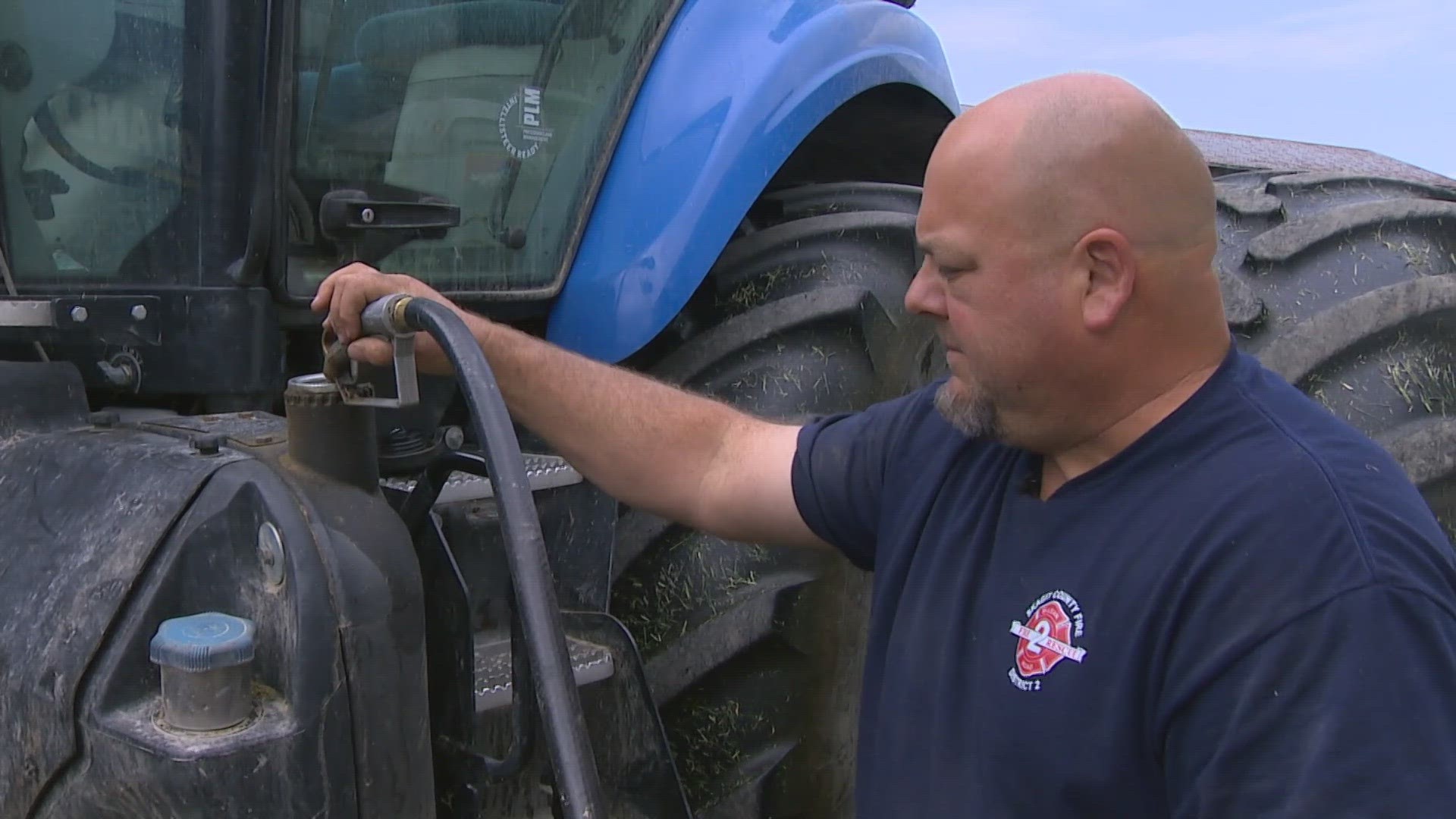MOUNT VERNON, Wash. — Washington farmers are frustrated over a fuel surcharge they say they shouldn't be paying.
In 2021, lawmakers passed the Climate Commitment Act, which is designed to drastically cut greenhouse emissions through a carbon capturing plan. One key reason the Climate Commitment Act was made into law was that it exempts farms from a fuel surcharge.
But they're now paying it for the foreseeable future.
Every time Jason Vander Kooy tops off one of his tractors he sees his family farm tanking.
"We're actually losing money every month right now," he said.
Vander Kooy's Harmony Dairy Farm in Mount Vernon has been around 49 years, but since the state's cap and invest program went into effect business has taken a huge hit.
A fuel surcharge from his supplier is costing the farm $400 to $500 per day. It's a fee Washington farms do not have to pay, but many are still being charged.
"It's frustrating because we work every day of the week, hour after hour," said Vander Kooy. "You're trying to keep the farm afloat. Then all these extra burdens keep getting placed on us. It's very discouraging."
Farmers blame the Washington state Department of Ecology for a flawed system they say provides no way for suppliers to track and report exempt fuels, so they simply pass the cost on to customers.
The law also has no teeth, and no fines for suppliers who flaunt it.
"We have a lot of sympathy for the farmers," said Luke Martland, Ecology's Climate Commitment Act manager.
Martland said at least two major suppliers have stopped assessing the surcharge, but most continue.
Some have been reported to Attorney General Bob Ferguson.
"We've educated them on the law. We've educated them on which fuels should be exempt and not exempt. And we've worked with them to provide guidance, to provide forms that can be used to track those fuels," Martland said. "We encourage farms to tell their suppliers they don't have to pay this surcharge."
Meanwhile, the Washington Policy Center says farmers are paying "an estimated $33 million in diesel alone this year for the charge. When gasoline, propane and natural gas are included, the number is likely closer to $50 million in total."
Ecology is forming a taskforce to examine the issue.
Vander Kooy would like to see some sort of refund mechanism implemented.
For now, he has no choice but to keep paying, hoping his second generation farm sees a third.
"I just want to be able to pass this farm on to the next generation," he said. "I'd hate to see Olympia or someone else take it away from us."

